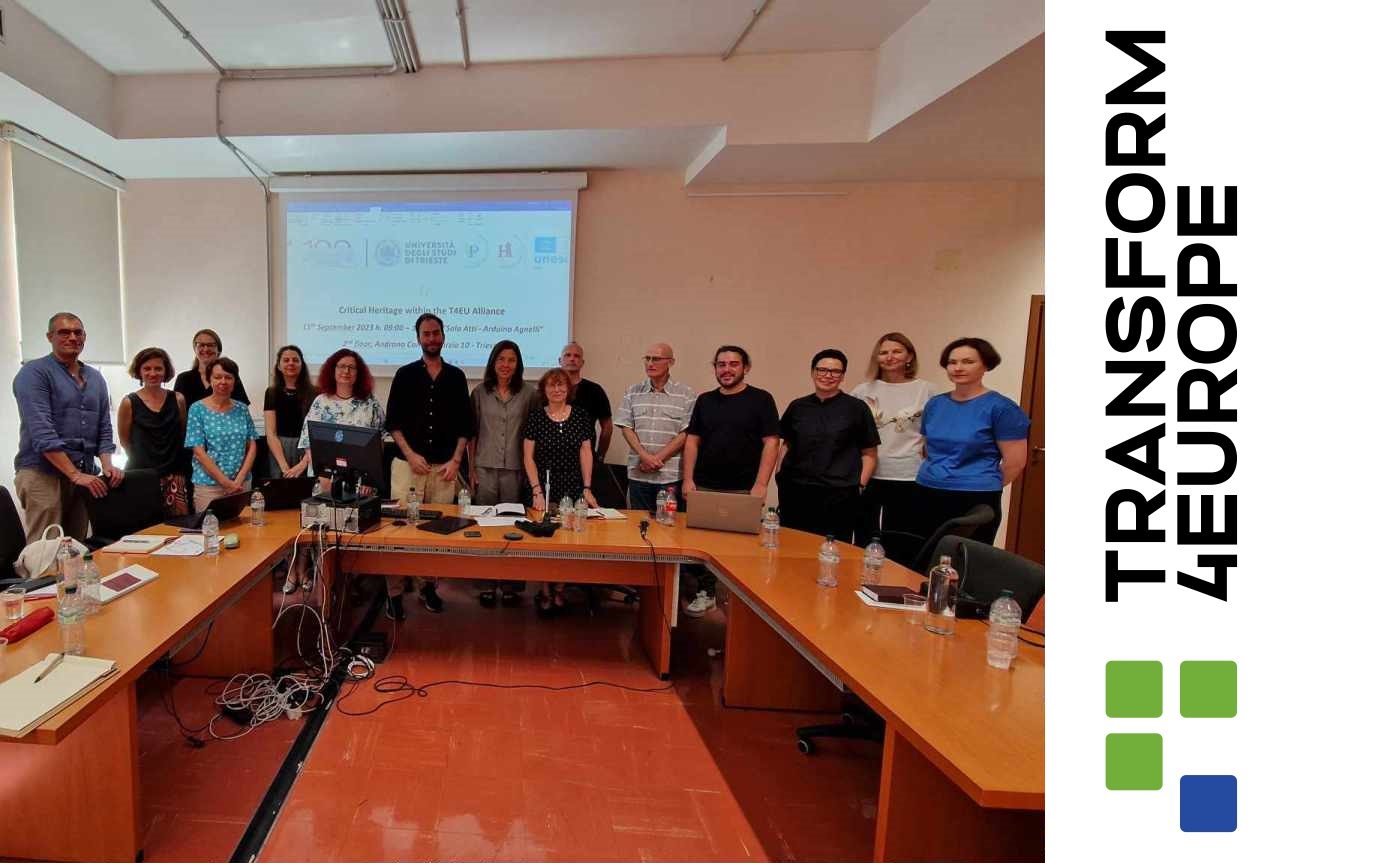VMU Initiated Critical Heritage Lab in Italy and Slovenia

On Monday 11 September, in the University of Trieste (Italy) and the University of Primorska (Slovenia), a new laboratory initiated by Vytautas Magnus University (VMU) was introduced, where scientists together with entrepreneurs, public activists and other social partners will carry out projects dedicated to cultural heritage. The new laboratory, Critical Heritage LAB, is one of the Transformation Labs implemented by VMU along with its partners, other members of the Transform4Europe Alliance: the Estonian Academy of Arts, Jean Monnet University, University of Trieste, and University of Primorska.
Transform4Europe, which unites ten European universities, aims to build a vision of the future of higher education and to implement it in reality by combining resources and comprehensively transforming activities in key areas.
The new Critical Heritage LAB, just like other Transformation Labs of the alliance, aims to initiate research with not only cooperation between the partner universities but also with the involvement of external partners. At these laboratories, academic community integrates its knowledge and experiences with organisations and institutions of various fields as well as NGOs, businesses, initiatives, and other partners.
“‘Critical heritage’ specified in the lab’s name refers to a critical approach to the interpretation of Cultural Heritage. It involves questioning the dominant narratives and power structures that shape the creation, interpretation, and management of heritage sites, and seeking alternative and diverse perspectives that reflect the complexity and diversity of the heritage itself and the communities that relate to it. The lab will aim to achieve these goals with the help of various disciplines, such as anthropology, archaeology, architecture, art history, cultural studies, history, sociology, sociolinguistics, and urban studies”, one of the project’s initiators, Transform4Europe Institutional Coordinator, VMU Professor Ineta Dabašinskienė said.
According to the professor, critical approach to heritage involves engaging with the diverse perspectives of local communities, including those who may have experienced the negative impacts of industrialization or urban planning, and considering alternative narratives that challenge dominant representations of the region’s heritage. It also involves acknowledging the complex and layered nature of the heritage of these areas, which may include both tangible and intangible heritage, as well as the significance of natural and ecological heritage in shaping the region’s identity and cultural heritage.
“A critical heritage approach would seek to promote sustainable and inclusive heritage management that respects the rights of local communities and acknowledges their diverse perspectives, while also promoting the preservation and interpretation of heritage sites in ways that are socially and environmentally responsible. This may involve working with a range of stakeholders, including government agencies, heritage organizations, local communities, NGO’s, and industry, to develop inclusive and collaborative approaches to heritage management that promote a more equitable and sustainable future for these regions”, Prof. Dr. Dabašinskienė notes, highlighting the key principles of the new lab.
Various theories and approaches are planned to be applied in cultural heritage research that are related to critical heritage, environmental heritage, post-socialist heritage, qualitative, archival, visual research and other methods.
The initiator of Critical Heritage LAB is Vytautas Magnus University. Partners: members of the Transform4Europe Alliance: the Estonian Academy of Arts, University of Trieste (Italy), University of Primorska (Slovenia), and Jean Monnet University (France).












